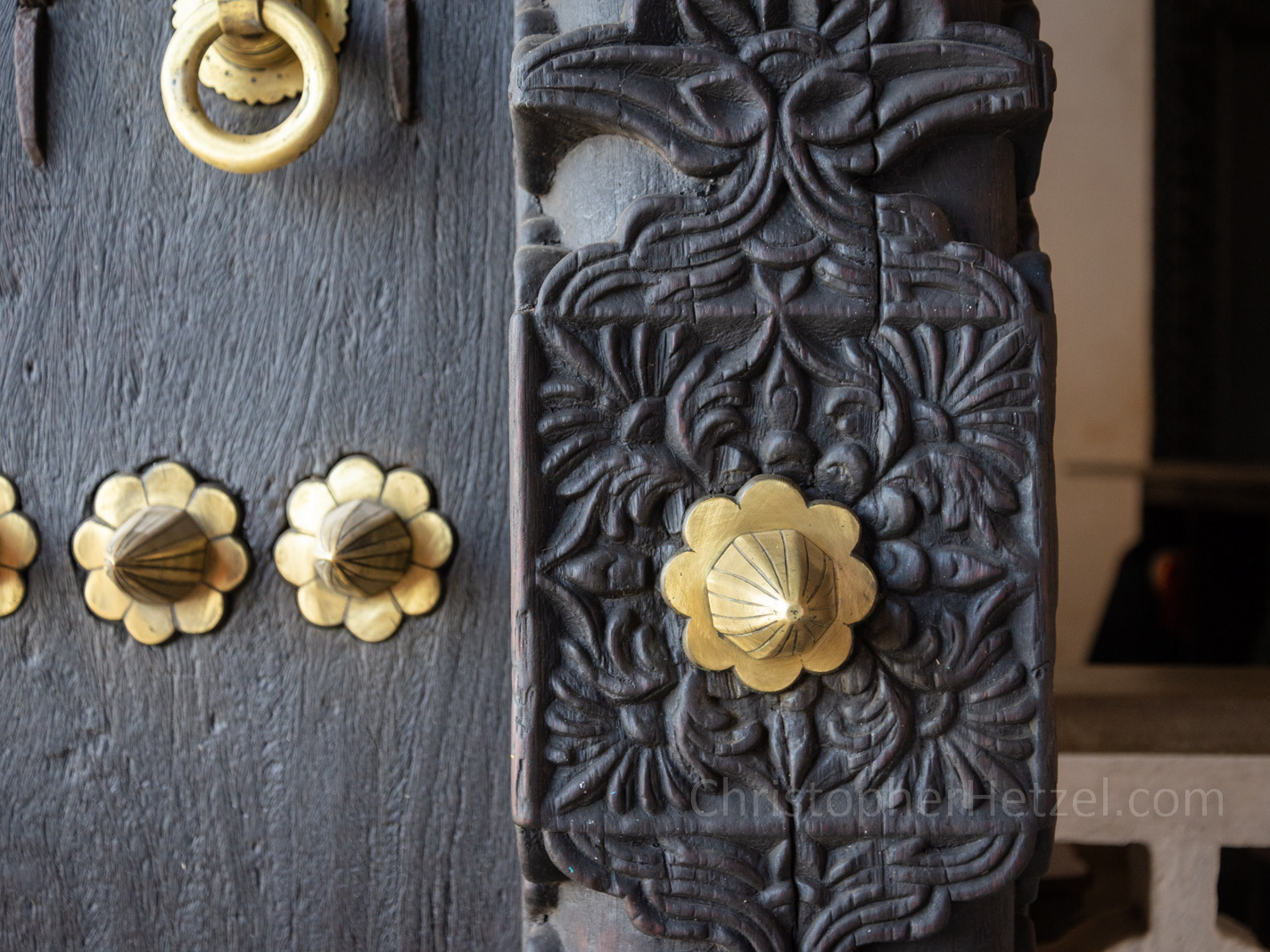This is the Shree Shiv Shakti Mandir Temple. It is a small Hindu temple tucked deep within the depths of Stone Town's maze of streets in Zanzibar. It was established in 1958 and is only one of two Hindu temples on the island. A relatively hard place to find, the temple has nonetheless become a common tour stop on local walking tours, including ours. The temple is located on 'Hurumzi Street' - which essentially means it is at the end of a narrow, non-descript alley, after turning left on a blind corner...located behind a pair of yellow-painted wooden doors. You wouldn't know it was there, except for the few signs.
When Jennifer and I visited, the temple caretakers had just finished washing down the pigeon-filled courtyard. There were HUNDREDS of pigeons. Hindus consider pigeons very sacred birds, as they are believed to be the divine vehicle of Mata Rati Devi, goddess of passion and sensuality in the pantheon of Hinduism, and close companion and consort of Kamadeva, the god of love. People are known to wear pigeon pendants on their necklaces when getting married, to help ensure love, happiness, and prosperity in their new life. Between the buzz of activity, the resident birds, and the need to take-off our shoes before entering, we opted not to pass beyond the shrine's entryway threshold, but still enjoyed seeing this out of the way location.
The earliest evidence of Hinduism in Tanzania dates to the 1st millennium BC, when there was early trade between East Africa and the Indian subcontinent. Archaeological evidence of small Hindu settlements from the period has been found in Zanzibar and parts of the Swahili coast, Zimbabwe, and Madagascar. Historically, Hindu traders and merchants are well known for helping maintain regular trade between India and East Africa, utilizing the Indian Ocean's prevailing trade winds to traverse back and forth across the sea - northeast from East Africa to the Indian peninsula in the winter and the reverse the rest of the year. Nowadays, Hinduism is considered a minority religion in Tanzania, practiced by some 50,000 people as of 2010 (according to the Pew Research Center).
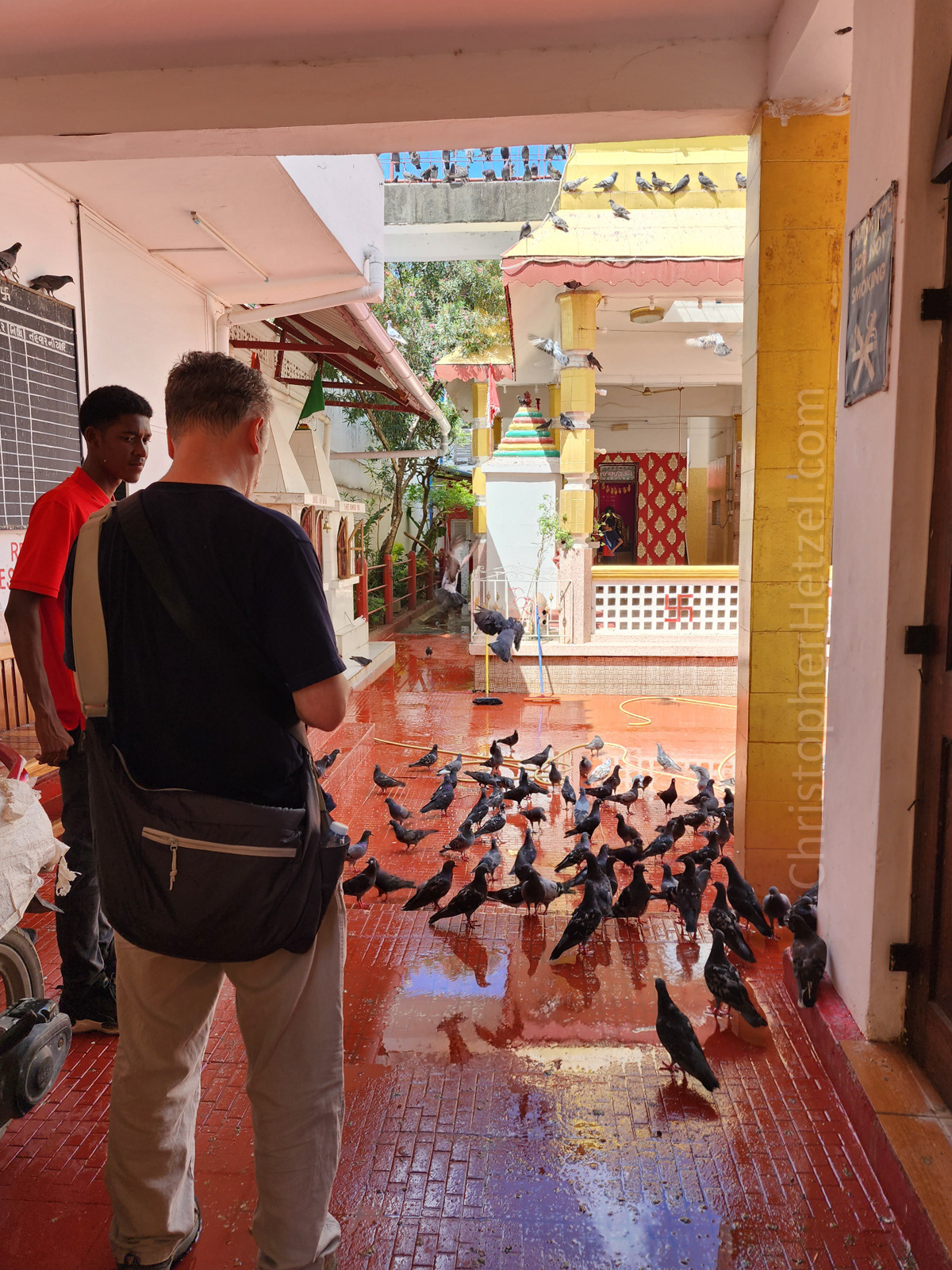





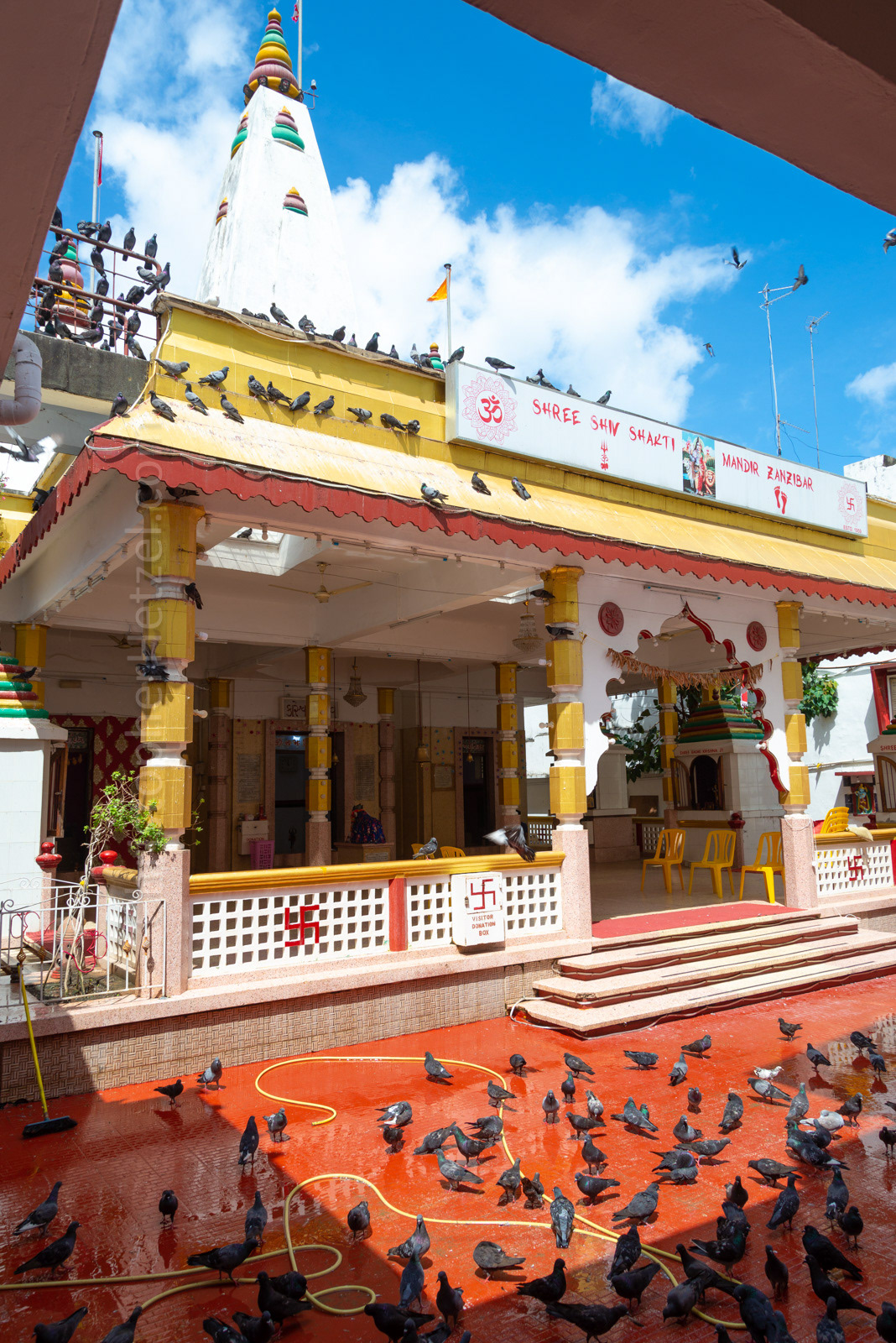
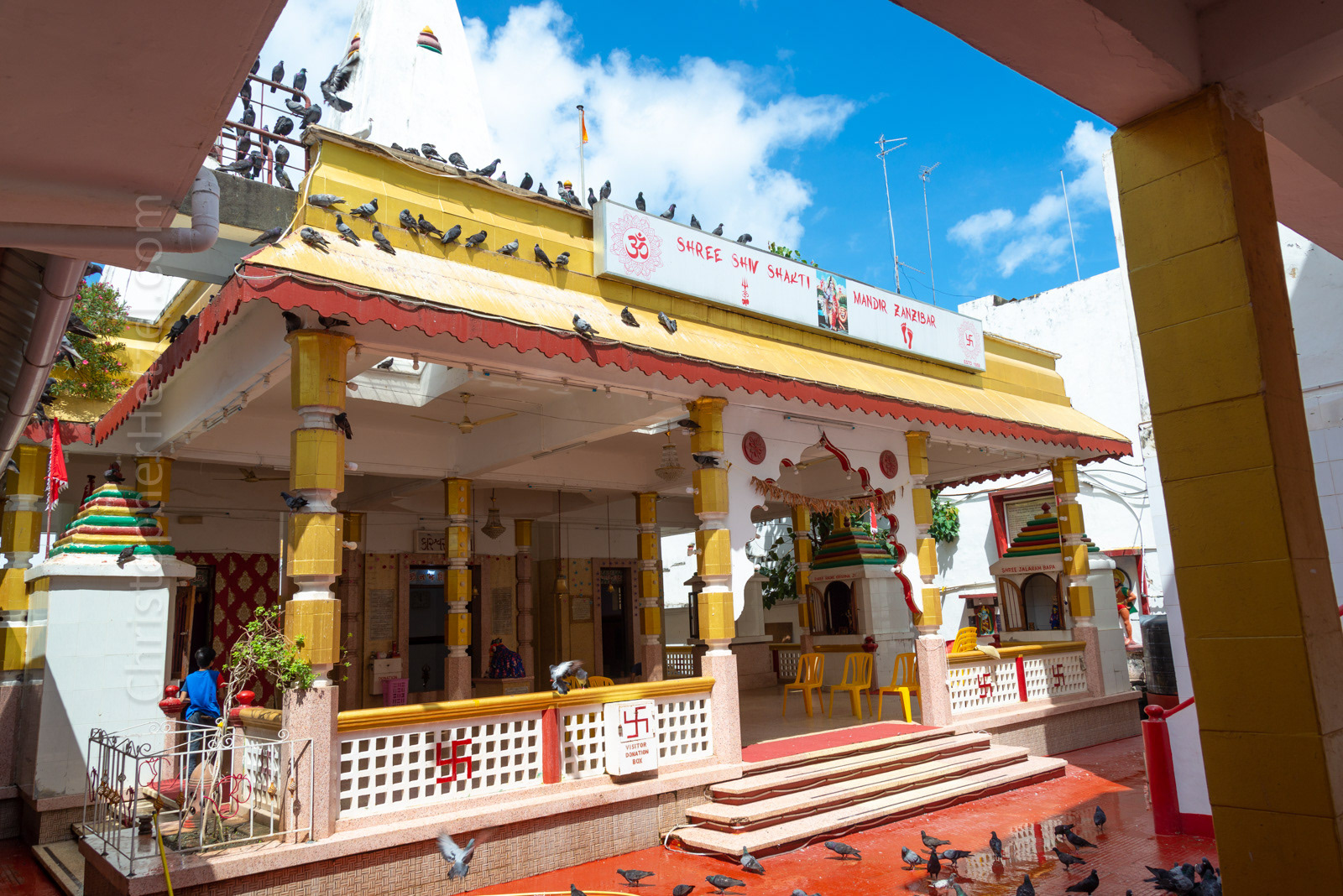
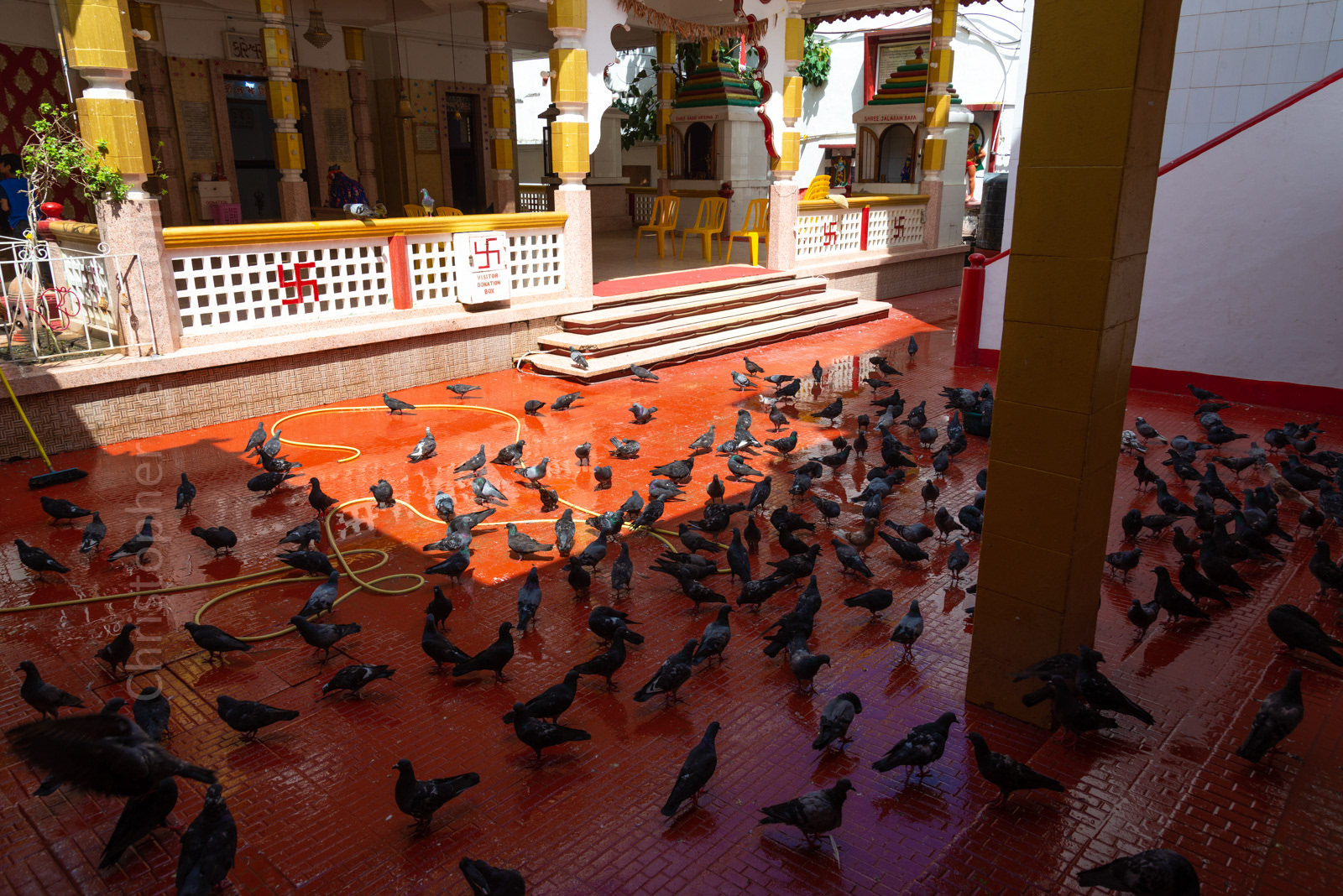

Return to Zanzibar
